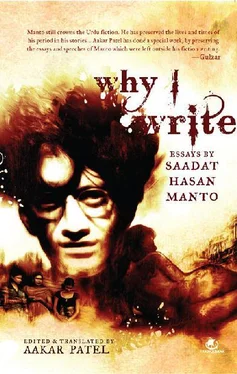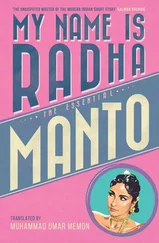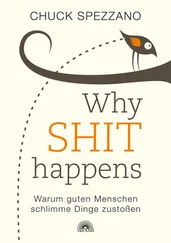Graveyards will also advertise their services: ‘City’s most modern graveyard! Where your loved ones will rest in as much peace as you have in your bedroom!’
There are many anjuman-type bodies in Bombay that do this sort of thing anyway, and arrange for burial. You need not do a thing. Just send word to one of them. From cleaning the corpse to clothing it and taking it to the graveyard, it’s all door-to-door service.They’ll hand you a bill at the end of it, of course.
And you’re a busy man, so why not? Let’s say your servant dies. You regret the death very much and are in fact deeply saddened by his passing. But it is also a fact that some acquaintances of yours are off to a picnic on the beach. And these are people with whom you may have some business dealings. So you summon someone from one of the anjumans. You settle their fees and it’s done.
Their young men will shoulder the bier and piously shout out verses from the Quran as they lead the body out. The funeral prayer will be held in a proper fashion (it is listed in your bill).
And in the adult grave, which costs two rupees and four annas, your faithful servant will be interred. Meanwhile you’re enjoying your picnic, and things are also being done quite smoothly here. If you’ve promised them a bonus, the anjuman’s boys will even offer a sheet of flowers over the grave.
A few days after my mother was buried, I had occasion to visit that graveyard again. The board had this new notice on it: ‘From June 1942, the labour charge of gravediggers has been increased. For digging an adult grave, one rupee and four annas. For digging a small grave, 14 annas.’
War has brought inflation even to the graveyard.
— (Originally published as Taraqqi Yafta Qabrastan )
* a wooden lattice placed above a body to separate it from the mud
Save India from its Leaders
This was Manto’s “Anna Hazare” moment. His shriek of protest against politicians he thought were bringing the nation to ruin. His faith in the people was as strong as that displayed by the protestors led by Hazare in 2012 and his solution was also similar to that of middle-class Indians today — a strong man capable of reining in the State. This piece was evidently written before Independence. Although no context is provided, as best I could make out, the piece was aimed at M A Jinnah and the Muslim League.
We’ve been hearing this for some time now — Save India from this, save it from that. The fact is that India needs to be saved from the people who say it should be saved.
They’re experts in making up this sort of thing, there’s no doubt. The last thing they are, however, is sincere.
After an evening of fiery speeches and righteous denunciation, when they return to their luxuriant bedrooms, their brains are empty of all thoughts of saving us.
They waste not a second on what actually ails India. Their concerns are personal, not national, and so occupied are they with this that there’s actually no space for us.
These people, who can’t even run their homes efficiently, and whose character is lowly, want to straighten out the country and lecture us on what is right.
It would be funny if it weren’t so ridiculous.
These people — “leaders” — see religion and politics as some lame, crippled man. They peddle him around to beg for money. They shoulder his corpse and appeal to those who will believe anything said from high on up. They claim they are bringing the corpse back to life with their effort.
But the fact is that religion is what it used to be and will forever remain that. The principle of religion is intact, solid. It is unalterable, the sort of mountain that waves can never erode.
When these leaders shed tears and wail, “ Mazhab khatre mein hai” (Religion is in danger), it is all rubbish. Faith isn’t the sort of thing that can come into danger in the first place. If anything is in danger, it’s these leaders who want to be saved by claiming religion is in peril.
Save India from its leaders, who are poisoning our atmosphere. You may not know this but these leaders go around with scissors. With these they snip your pocket and take all your money. Their life is a long run — towards wealth. Every time they exhale, you can smell the odour of insincerity and greed.
At the head of enormous processions, weighed down by fat garlands, delivering unending speeches full of empty words, they make a path to power for themselves. A path to luxury. They raise and make huge sums of money for themselves as you have seen, but have they told you how unemployment will end? They scream “religion” all the time but when did they last follow the teachings of their faith?
These fellows — who live in houses given to them, who live on the money they raise from others — how can they make us self-sufficient?
India doesn’t need many leaders, each singing a different tune from the other, but those who sing together using the same words. We need only one, as wise as the Caliph Umar and as brave as Ataturk. Someone who will rein in the runaway horse of the State. Who will lead us manfully towards Independence.
Remember — the greedy will never be able to lead us in the right way. Those dressed in silk have nothing to offer those who sleep on stones. Fling such people aside.
They are bed bugs who creep inside the crevices and emerge only to suck our blood.They should be forced out with the heat of our despise.
They rant against the rich for no reason other than that they want to be rich themselves. They are the worst sort of people imaginable. They are the thieves among thieves. Let them know what you think of them.
What’s needed is for our young men, who may be clothed in tatters but are strong and broad-chested, to stand up and toss them aside from the pedestals they’ve occupied without our permission.
They have no right to claim empathy with us, the poor. And remember — there’s no shame in poverty. Those who think there is are themselves shameful.
The man who fends for himself is the superior of the man who lives off the work of others. Be the man who fends for himself. Look coldly at what is in your best interest. Once we take our fate into our hands, these leaders will have nowhere to run.
— (Originally published as Hindustan Ko
Leaderon Se Bachao )
To my mind, Manto was Bombay’s finest chronicler, better than the next best writer about the city, Behram Contractor. Manto wrote what it felt and meant to be part of a great, modern city. Contractor, famous under the name “Busybee”, wrote merely of experiences. In this piece, Manto attacks the rioting that broke out in Bombay after the Muslim League’s Direct Action Day and blames one man, Hafiz Ali Bahadur Khan*. Manto hated religious division and didn’t think much of the Muslim League. This piece is raw, and though not particularly penetrative or insightful, it shows his sentiment towards a problem that Indians still live with. It is remarkable how aptly we can apply the situation that Manto describes to the present time. Manto first fled Amritsar’s religious violence, and then, a short time after writing this piece, fled from Bombay at Partition.
(I escaped the filthy lanes and bazaars of Amritsar to land in Bombay. I thought that in this beautiful and broad-minded place, I would be rid of the communal squabbling I had found in Amritsar. I was wrong.
A few months after my coming, Hindus and Muslims began fighting, and kept fighting.
The cause was the same as it always is — mandir, masjid… you know it well. Many human beings were sacrificed for this. I saw much of this savagery myself but kept my feelings and anguish within.
Читать дальше












